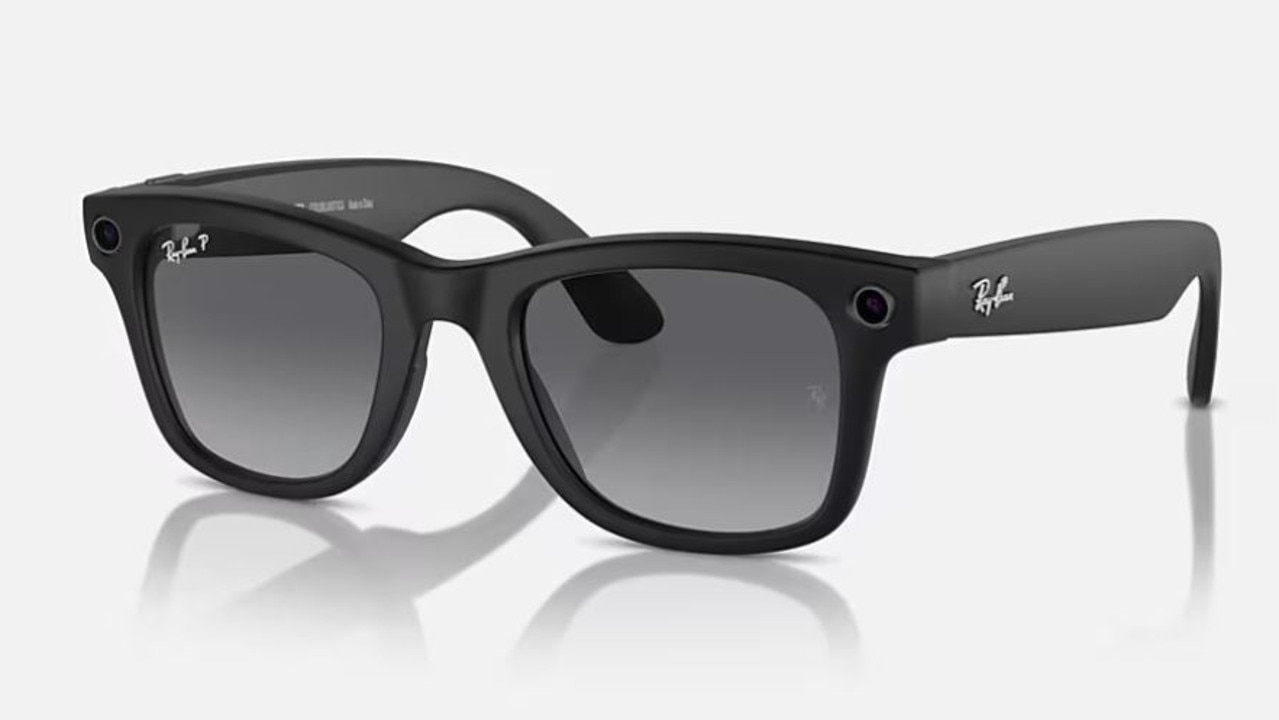Creepy new way you’re being spied on
A study has revealed how smart glasses – with hidden cameras and microphones – are being used to record people without their consent or in prohibited places.
Fears that new sunglasses developed by tech behemoth Meta would become spywear have been realised.
One in six Aussie wearers of smart glasses, including Mark Zuckerberg-backed Ray-Bans,
admit to recording people and places that they shouldn’t.
A newly published peer-reviewed study by Monash University reveals 17 per cent of respondents who own smart glasses – with hidden cameras and microphones – have used them to record people without their consent or in prohibited places.

The study – set to concern child protection and privacy advocates – was conducted after Meta released its Ray-Ban Stories smart glasses, but before their latest AI-enabled model, Ray-Ban Meta, helped propel smart glasses into the mainstream.
Research lead and social scientist Dr Fareed Kaviani said smart glasses were becoming more popular globally.
“The new generation of Ray-Ban smart glasses have sold more in a few months than the old ones did in two years, illustrating more widespread consumer adoption,” he said.
He also pointed to research that valued the Australian smart glasses market at about US$31.4 million of revenue and projected it would reach US$205.4 million by 2030.
“It’s really important to highlight the usefulness of the device for specific cases such as visually impaired individuals where the device (can process) video to audio in real time,” he said.
“(But) how can we design them to be more socially conscious to foster socially responsible technology?”

Holding Redlich general counsel and data law expert Lyn Nicholson said technology was changing rapidly but privacy laws lagged behind.
“If people buy (smart glasses) and misuse them, at some point down the chain there will be an action but there is not the level of protection there could be,” she said.
“If guns can cause harm, you have to have a gun license; if driving can cause harm, you need a driver’s license; but if these can cause harm, there is no restriction on who you can sell them to.”
People wearing AI-enabled smart glasses also put their own privacy at risk.
Ms Nicholson said the terms and conditions for the Ray-Ban Metas allowed Meta to collect photos, videos and data from the smart glasses and use them “to train new products and services”.
“So you are not protected and your family and friends are not protected if you take pictures of your family and friends,” she said. “Meta can use those images as it wishes.”

According to the App Store, the Meta View app, which must be downloaded to use the smart glasses, may collect and link the following data to the user’s identity: health and fitness, purchases, financial information, location, contact information, contacts, user content, search history, browsing history, identifiers, usage data, sensitive information, diagnostics and other data.
Dr Melissa Humphries, a senior lecturer at the University of Adelaide’s School of Computer and Mathematical Sciences, said users concerned about their privacy should disable cloud processing and Meta AI to minimise data collection.
This would essentially make the photos and videos no more accessible than if they were taken with a camera phone, but a lot of the glasses’ functions would be limited.
She said simply turning off location services may not be enough to hide the user’s location.
“If you use Meta AI and ask a question relevant to the place you are in, it’s going to look at the visuals and audio around you and may very well learn where you are … because it has to process the environment around you to give the service you asked for,” she said.
Dr Humphries recommended users regularly review their privacy settings, which may reset with updated terms and conditions, and use the hardware switch to disconnect the glasses between uses.
More Coverage
Originally published as Creepy new way you’re being spied on





